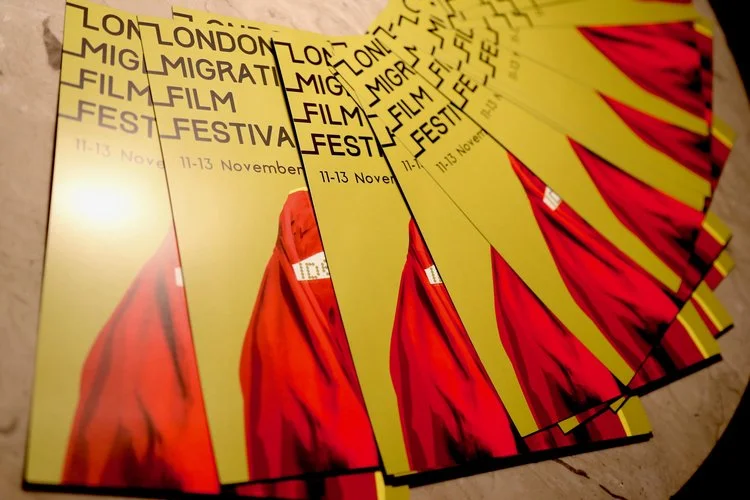London Migration Film Festival - 2016
The first edition of London Migration Film Festival took place over a long weekend from 11-13 November 2016 across two fantastic venues in Deptford: Deptford Cinema and Buster Mantis.
Eight feature length films focussing on various elements of migration were screened as part of the festival, along with seven shorts. Between films there were two panel discussions with academics, artists, practitioners and former immigration detainees. The discussions explored the themes of ‘diaspora and integration’ and ‘borders in everyday lives’. Further, the festival incorporated live world music from: Kokoroko, Djanan Turan, Lili Caseley, Vocal Global, and Alvorada, as well as DJs from Dance for Refuge, DJ BlondeZilla and Sheeb. Finally, there was a workshop on Afghan kite-making and a networking brunch, offering a platform for dialogue.
The goal of LMFF is to portray the diversity, nuance and subjective experience within migration - including and beyond the refugee experience - in order to restore the dignity and humanity inherent within it. We hope to challenge the rhetoric reducing migrants to simplistic categories: enemies or victims, aggressive or passive.
Films tackled a myriad of topics: asylum, mixed-motivation and labour migration, nomadism, diaspora and integration, and South-South movement. A few films explored intersectional themes, such as the relation between race, gender, class and migration. We intentionally chose films focussing on diverse parts of the world and migratory routes, in order to challenge the expectation that most people move from the global South to the global North. In order to raise the profile and voices of migrant-filmmakers, a number of films shown were directed, produced and starred in by migrants. For example, Pawo, a film telling the story of a Tibetan refugee in India, was directed and acted in by Tibetans in exile.
Photos by Wasi Daniju
Tickets for all the films screened at London Migration Film Festival went sold out, and the festival attracted the attention of several journalist and media platforms, including Sky News Arabia.
By screening films of widely diverse backgrounds we attracted viewers with diverse interests, including students, artists, academics, film-enthusiasts, as well as just curious locals. We intentionally held screenings at affordable venues and kept ticket prices low to be economically-inclusive. And in order to diversify audiences and increase access further, we offered five free tickets to destitute refugees, asylum seekers or vulnerable migrants at each screening.
Revenue raised through the festival supported Akwaaba, a small charity providing weekend drop-in and advice services to refugees and migrants in Hackney, London.





















